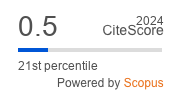Abstract
We hypothesize that the anti - apoptotic response in mesenchymal stem cells (MSC) under low doses of radiation may develop through the participation of an extracellular mediator of signal transmission between cells - fragments of oxidized cell - free DNA (cfDNA).Aim. To investigate the effect of radiation in low doses (10 sGy) and oxidized fragments of cfDNA on the activation of genes in MSCs signalling cascades that regulate the cellular response to DNA damage. Materials and methods. We investigated the effect of radiation in low doses (10 cGy) and fragments of oxidized cfDNA (concentration 50 ng/ml) on the activation of signalling gene cascades in MSC that regulate the cellular response to DNA damage.Results. We have shown, that in MSC under small doses of radiation for 15-40 minutes the transcriptional activity of pro - apoptotic genes is activated, the level of apoptosis increases and due to the death of part of the cells in the culture of MSC, fragments of oxidized cfDNA are formed. 3-72 hours later the expression of genes ING2, HUWE1, TP53, BBC3, NOXA, P53AIP1, BAX, BAK1, MMP7, ENDOG decreases 1.5-3 times ( p <0.01), which is accompanied by an increase of the antiapoptotic genes expression: BCL2, BCL2A1 (Bfl-1/A1), BCL2L1 (BCL-X), BIRC2 (c-IAP1) by 2-4 times ( p <0.001), and, as a result, a decrease in the level of apoptosis. Since the regulation of gene expression in MSC in response to radiation and to the action of the oxidized cfDNA fragments is the same, we can assume that one of the factors of stress signalling in the action of radiation in low doses can be cfDNA fragments of dead cells.Conclusion. Small doses of radiation and oxidized cfDNA may activate a signalling pathway in MSC, that regulates the response to DNA damage, leading to an antiapoptotic response.






































